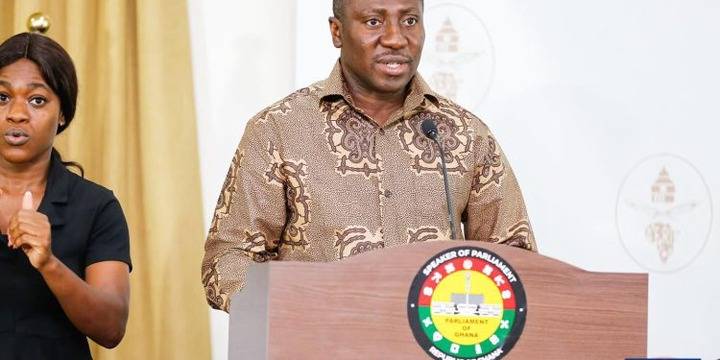Executive Accused of Undermining Parliamentary Oversight After Billions Approved for Flagship Programmes
The integrity of Ghana's parliamentary oversight process has been called into question after the Minority Leader, Alexander Afenyo-Markin, publicly accused the ruling Mahama administration of failing to submit official policy documents for major national initiatives. This critical breach, according to the lawmaker, is severely hindering Parliament’s ability to scrutinise the use of vast public resources, including those allocated for the much-publicised '24-Hour Economy' programme.
Speaking at a press conference in Accra on Wednesday, October 22, 2025, Mr. Afenyo-Markin expressed deep concern that the executive branch has consistently delayed presenting the necessary documentation, despite the legislature having approved significant funding for these projects.
"The government has failed to furnish Parliament with programme documents for the flagship programmes it has launched," the Minority Leader stated. "Since the swearing-in, Parliament has approved billions of cedis for various ministries ostensibly to execute these programmes. Sadly, to date, none of the documents have been presented to Parliament to enable us properly commence oversight.”
The Unscrutinised Budgetary Black Hole
The core of the Minority Leader's complaint revolves around transparency and the fundamental principle of parliamentary checks and balances. As the custodian of the public purse, Parliament is obligated to track how funds are used, ensuring efficiency and value for money. Without the foundational policy documents, however, this crucial function becomes impossible.
The funds allocated to these programmes-described as "billions of cedis"-represent a significant commitment of Ghanaian taxpayer money. The absence of policy blueprints raises immediate red flags regarding the operational strategies, expected outcomes, key performance indicators, and, crucially, the accountability structures governing the expenditure. When the executive keeps the legislature "in the dark," as Afenyo-Markin put it, it creates a potential environment for mismanagement.
This procedural failure is particularly salient given the current economic climate in Ghana, where calls for prudent spending and fiscal discipline are paramount. The ability to guarantee value for money on large-scale government projects is directly linked to the level of legislative scrutiny applied.
List of Undocumented Flagship Policies
The challenge extends beyond a single policy, encompassing a range of high-profile initiatives launched by the Mahama administration. The Minority Leader highlighted several key programmes for which documents remain outstanding in Parliament:
The 24-Hour Economy Programme: A major policy intended to boost economic productivity by encouraging extended work hours and shifts across various sectors.
The One Million Coders Programme: A technology-focused initiative aimed at rapidly expanding digital skills and youth employment in the IT sector.
The Agri-for-Economic Transformation Initiative: A strategic plan focused on modernizing and commercializing Ghana’s agricultural sector for greater economic impact.
The Big Push: A general developmental and infrastructural strategy.
Labour Export Programme: An initiative designed to streamline and capitalize on the export of Ghanaian labour to international markets.
National Apprenticeship Programme: A programme intended to institutionalize vocational training and skills acquisition for the youth.
Afenyo-Markin affirmed that while the objectives of these policies might be commendable, the actual implementation must be grounded in legislative accountability. "Oversight cannot happen when the basic programme documents are not laid before Parliament," he insisted.
Undermining Democratic Accountability
The accusation effectively casts doubt on the Mahama administration’s commitment to collaborative governance and transparency. In any functional democracy, the executive must be answerable to the people through their elected representatives. By withholding strategic documents on public-funded projects, the government appears to be placing itself outside the necessary framework of accountability.
This resistance to legislative scrutiny risks fostering a perception of secrecy, which is detrimental to public trust in governance. The Minority Leader’s demand is not simply a political tactic; it is a fundamental call for the executive to respect the separation of powers and the constitutional mandate of the legislative branch to conduct effective oversight. The onus is now on the administration to respond to this challenge and immediately avail the policy papers for parliamentary consideration to ensure fairness and value for money for the Ghanaian populace.




No comments yet
Be the first to share your thoughts!